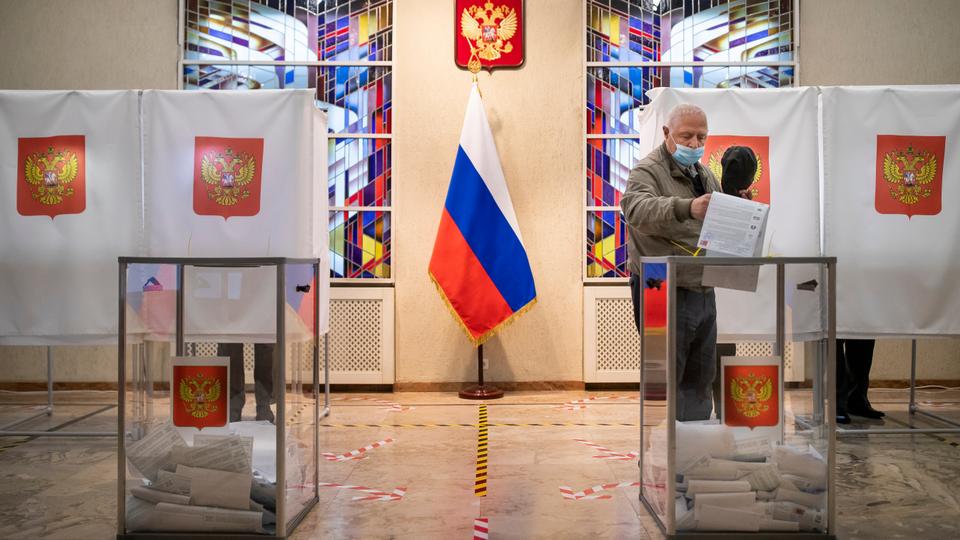Russia’s ruling party has retained its supermajority in parliament, further cementing President Vladimir Putin’s grip on power in elections that most opposition politicians were barred from and that were marred by multiple reports of violations.
The vote has been watched closely for any signs that Putin’s control might slip, however slightly, ahead of the 2024 presidential election.
It’s not yet clear whether Putin will run again, choose a successor or outline a different path — but he is expected to keep his hand on the tiller whatever he decides, and an obedient State Duma, or parliament, will be crucial to those plans.
READ MORE: Pro-Kremlin party leads Russia’s parliamentary vote – exit polls
Results from nearly 99 percent of the country’s polling stations gave the ruling United Russia party 49.8 percent of the vote for the 225 seats apportioned by parties, according to the Central Election Commission.
Another 225 lawmakers are chosen directly by voters, and the results on Monday morning showed United Russia candidates leading in 198 of those races.
Chair of the Central Election Commission Ella Pamfilova confirmed at a briefing that United Russia has retained the so-called constitutional majority in the parliament, or two-thirds of the 450 seats required for a party to be allowed to make changes to the country’s constitution.
Voter turnout stood at 51.68 percent, Pamfilova said.
Concerns over manipulation
But concerns that the results had been manipulated mounted, with many decrying that a breakdown of the online voting in Moscow was still not available to the public.
The results in the other six regions that were allowed to vote online have been detailed.
In Moscow, approval of the ruling party has always been particularly low and protest voting has been widespread, and candidates from the Communist Party were calling for protests of the vote later in the day.
Organisations linked to imprisoned opposition leader Alexey Navalny have been declared extremist, and anyone associated with them was barred from seeking public office by a new law.
Other prominent opposition politicians faced prosecution or were forced to leave the country under pressure from the authorities.
Navalny’s team still hoped to make dents in United Russia’s dominance with their Smart Voting strategy, which promoted candidates who had the best chance at defeating those backed by the Kremlin.
However, a massive effort by authorities to suppress the strategy has been underway in recent weeks.
The voting was also marred by numerous reports of violations, including ballot-stuffing.










Discussion about this post